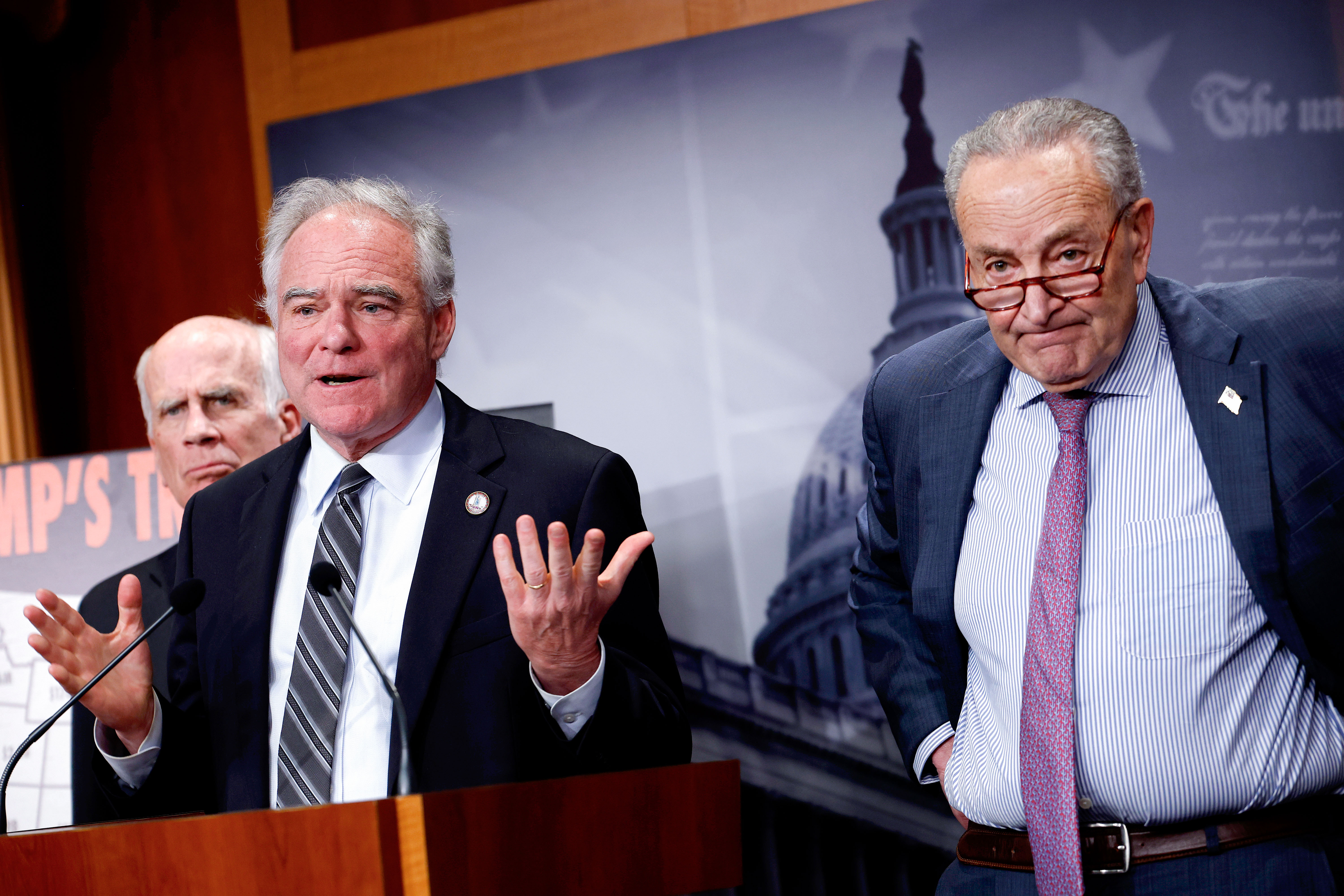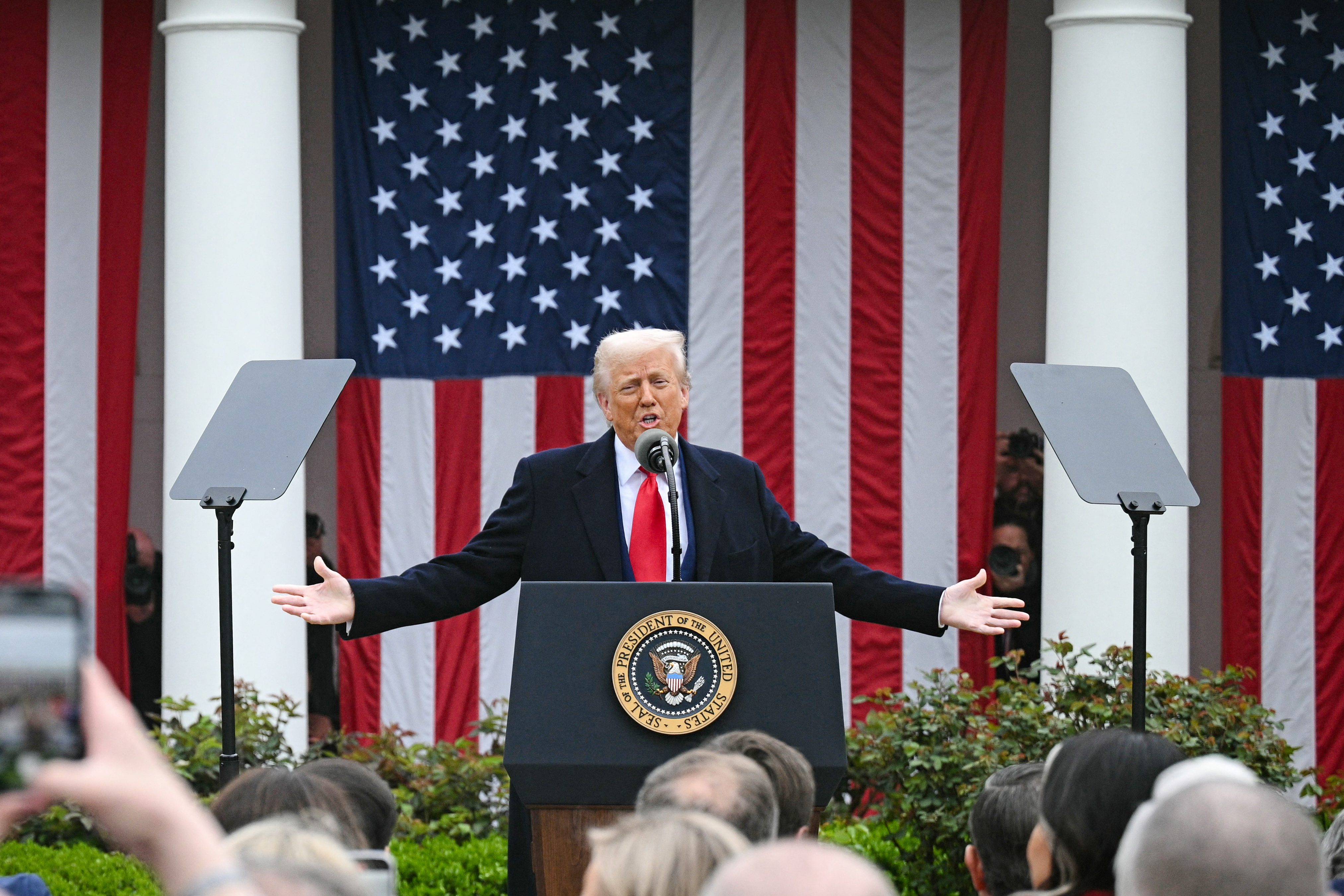


Sen. Tim Kaine (D-Va.) (C) speaks alongside Senate Minority Leader Charles Schumer (D-N.Y.) (R) and Sen. Peter Welch (D-Vt.) at a press conference at the U.S. Capitol in Washington on April 2, 2025. Kevin Dietsch/Getty Images
Senate efforts to overturn President Donald Trump’s tariffs on Canadian goods entering the United States succeeded in a symbolic move.
S.J. Res. 37, legislation introduced by Sen. Tim Kaine (D-Va.) to scrap the 1977 International Emergency Economic Powers Act (IEEPA), was approved in a 51-48 vote.
Four Republicans—Sens. Rand Paul (R-Ky.), Susan Collins (R-Maine), Lisa Murkowski (R-Alaska) and Mitch McConnell (R-Ky.)—voted with Democrats to pass the measure.


